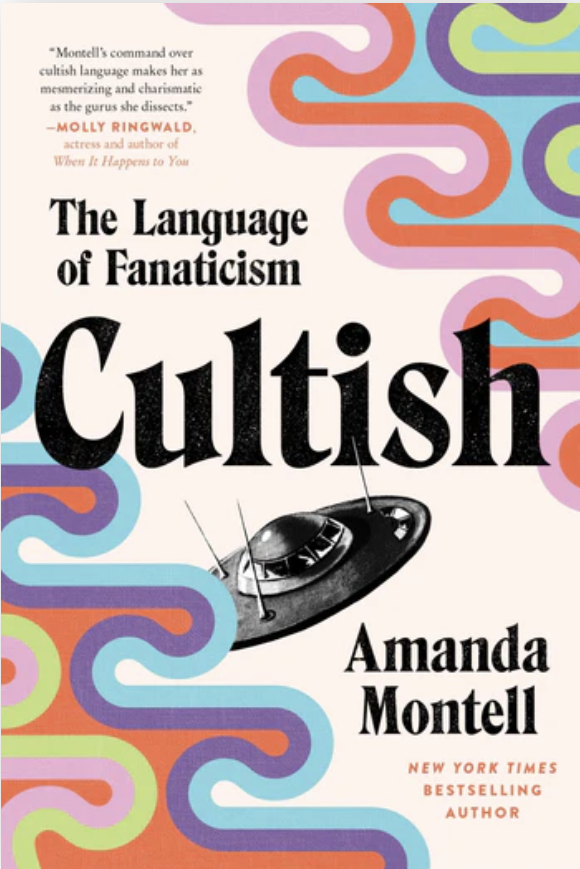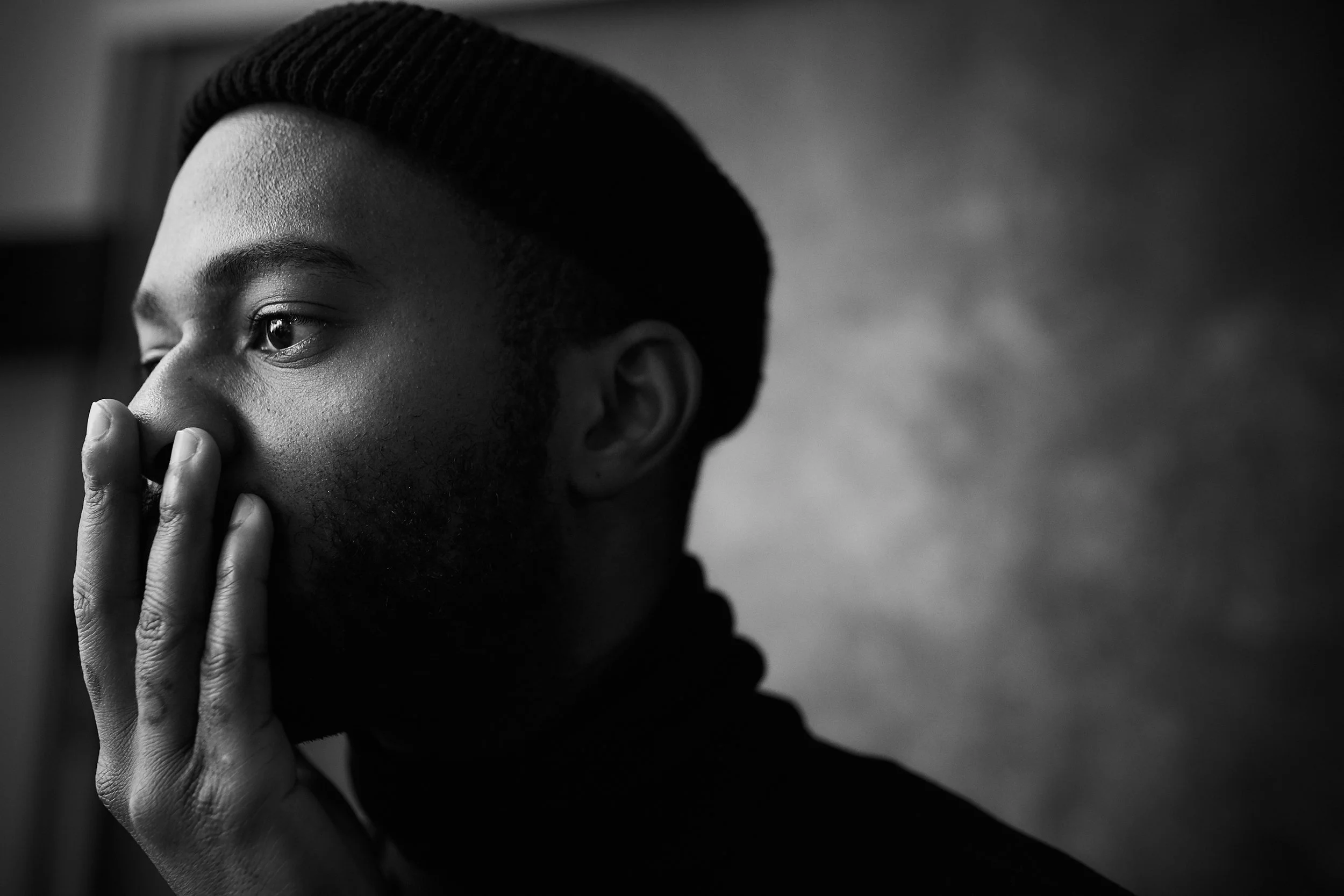When a Linguist Reads a Linguist
Amanda Montell seems like someone I should be reading. She’s a writer who uses linguistics to dig into cultural zeitgeist topics like feminism, cults, and overthinking. I have an MA in Sociocultural Linguistics; she has a BA in Linguistics and writes from that vantage point. On paper, her work should be right up my alley. Yet, I didn’t pick up any of her three books until last week.
Part of the hesitation was: do I need them? If she’s writing from a sociolinguistic standpoint, is she offering anything I don’t already know? Or just rehashing what I studied in depth during my Master’s program?
I first heard about Montell during the pandemic when a friend told me about her podcast Sounds Like a Cult. In each episode, Amanda and her co-host (though it now sounds like there are three of them) dissect a group in American society and ask: is it a cult? Like most good podcasts, the appeal isn’t just the topic, it’s also the back-and-forth between the hosts. At first, I enjoyed it; I’d listen at the gym, intrigued by the premise. But after a handful of episodes, I felt I’d gotten the gist. The dynamic wasn’t enough to keep me engaged, and honestly, I didn’t need Amanda to tell me whether CrossFit or SoulCycle was “a cult”- I could handle that analysis myself.
I also started to find the premise hyperbolic. While (for some) it can be fun to imagine cults lurking everywhere—especially in the current American political climate—framing every group as a potential cult feels alarmist. Humans have a basic need for community, and rhetorical patterns that foster belonging aren’t inherently sinister. Cults exploit that, yes, but not every group that uses these techniques deserves to be scrutinized under that label. Montell does acknowledge this in her work, but the hook of “cult” is anxiety-inducing and it’s therefore unfair to associate some of these groups with it. At the same time, I understand why she uses it- the word is sticky, which makes it very effective as a marketing strategy.
So I didn’t feel much urgency to read her books. But when a few friends mentioned they had read Cultish, my curiosity was resurrected. I ended up taking a week to read all three- and, for what it’s worth, she is a very good writer.
In this post, I’ll focus on Cultish: The Language of Fanaticism. In my next post, I’ll review Wordslut: A Feminist Guide to Taking Back the English Language along with The Age of Magical Overthinking. Then I’ll share some final thoughts on Montell’s work to-date as a whole. As a head’s up: some details get repeated from review-to-review so they can stand on their own (in case someone doesn’t read everything ;) )
As always, thanks for reading.
Review of Cultish: The Language of Fanaticism
Amanda Montell’s Cultish promises to reveal how language lures people into cults and keeps them there. It’s a premise that should be tailor-made for me: she’s a linguistics graduate, I have an MA in Sociocultural Linguistics, and I’m fascinated by how words shape culture and belonging. But reading Cultish, I found myself thinking less about sociolinguistics and more about what Montell is really doing—journalism, cultural commentary, and memoir, all dressed in linguistic clothing.
Montell is a gifted writer. Her prose flows easily; her voice is sharp, witty, and inviting. Reading her feels like listening to a smart friend walk you through a subject they’ve been obsessed with for years. Her personal investment in the topic gives the book urgency: her father spent part of his youth in a cult.
She also covers impressive ground. Traditional cults like Heaven’s Gate and Jonestown sit alongside modern-day formations: multi-level marketing schemes, wellness and fitness empires, Instagram influencers, and diet programs. Her chapter on Optavia, in particular, stood out to me because I had a friend who got swept up in it. The program charged hundreds per month for branded food and bizarre, unhealthy rules (Optavia’s fake Cheetos allowed, apples forbidden). Montell’s reporting on how language sells these “lifestyle plans” captured the same sense of unease I felt watching my friend buy in, both literally and figuratively.
The final chapter also lands well. Montell acknowledges the human need for belonging, purpose, and ritual. Not every group that provides community is a cult, she reminds us, so it’s best if we all relax and are less judgmental. The problem arises, though, when leaders exploit those human needs for power, money, or ego. That nuance helps temper the book’s more alarmist framing.
For all its strengths, Cultish doesn’t deliver what I’d call sociolinguistics. At best, it’s “sociolinguistics lite”—journalism informed by linguistic concepts. In her author’s note, Montell is upfront: Cultish is “opinion-based cultural commentary told through a sociolinguistic lens.” That’s somewhat accurate, and important for readers to remember, especially those expecting anything close to rigorous sociolinguistic analysis, because this isn’t that. I’d actually say Montell takes an interdisciplinary approach that includes sociolinguistics.
In that vein, I often wished she’d gone further with her interdisciplinary approach. For example, she references research done by psychologists, anthropologists, and sociologists, but when writing about fitness and diet programs, why not bring in exercise science or nutrition research? A page or two of hard data would have sharpened her critique of how these industries prey on people’s vulnerabilities tied up in our culture’s obsession with thinness. Without it, her argument felt less devastating than it could have been.
Also, as I mentioned in my intro where I discussed her podcast, I felt the premise leaned too heavily on the word “cult.” While catchy, it can be more of a marketing hook than an analytical tool. Humans use language to build group identity; cults exploit that, as do CrossFit gyms and fandoms. Labeling every group “cultish” risks flattening the nuance and shrouding otherwise benign groups with an alarmist label.
Despite these frustrations, I’m glad I read Cultish. It’s readable, engaging, and brings cult dynamics into conversation with the everyday communities we join and leave. For me, the real value wasn’t in its linguistics, but in its cultural critique of how humans seek belonging, how language helps form groups, and how easily those instincts get exploited for profit and power in American society.
This was a very important topic, written with charm and energy, though not with the rigor I, personally, had hoped for. If you want an accessible, thought-provoking read that does use some linguistic analysis to uncover what lives in plain sight, Cultish delivers. If you’re a trained sociolinguist, it may leave you wanting more (but you’ll know where to get it ;) ).





